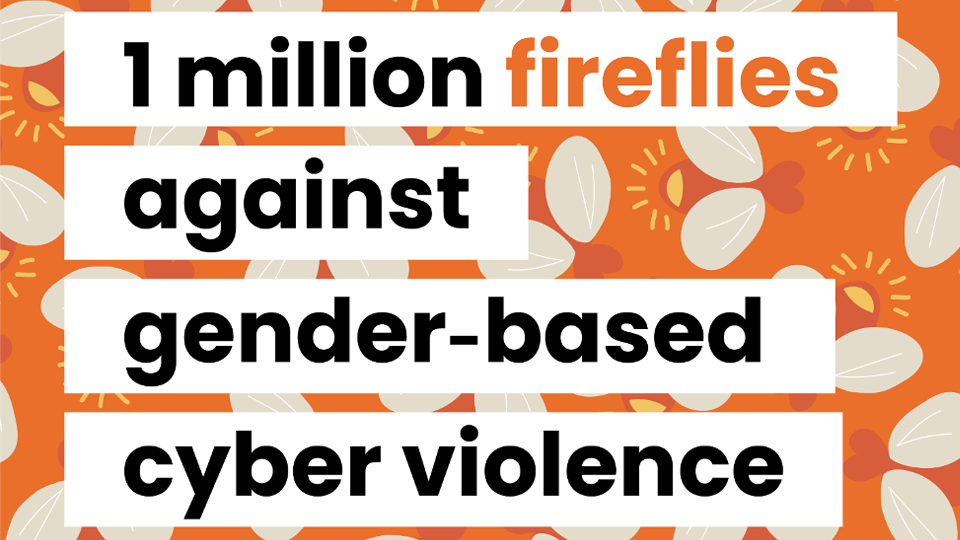UN Women Turkey spotlights cyber violence and raises awareness on the issue through innovative campaign
As part of the 16 Days of Activism against Gender-based Violence campaign, UN Women Turkey invites everyone to join an online solidarity action against gender based cyber-violence. The aim is to collect one million fireflies to light the dark, while raising awareness on the issue through an interactive quiz.Date:

UN Women Turkey’s 16 Days of Activism signature campaign Fireflies is lighting up screens this year to raise awareness to eliminate online and Information and Communication Technology (ICT) facilitated violence (cyber violence) against women and girls. Calling everyone to “light a firefly and light the dark” to mobilize 1 million fireflies, the campaign draws attention to women and girls who are harassed on digital spaces and experience cyber violence. The campaign aims to create an online solidarity network and raise awareness and knowledge of the general public on cyber violence, its manifestations and consequences, and ways to protect oneself and others.
UN Women Turkey launched a challenge on Instagram to direct social media users to the campaign site www.fireflies.digital. At the campaign site, visitors test their knowledge on cyber violence by completing an interactive quiz and downloading a short guide on this subject. At the end of the quiz, visitors are directed to challenge their friends on social media and invite them to join the solidarity action. The data from the quiz will feed into UN Women’s programming on cyber violence and identifying next steps in partnership with different institutions.
Numerous celebrities and social media influencers supported the campaign, which is funded by Sweden through the Swedish International Development Cooperation Agency (SIDA). The media partner of the campaign is Milliyet Newspaper which is a member of UN Women’s Media Compact.
Cyber violence in the context of the COVID-19 pandemic and beyond
While there is still a lack of comprehensive global definition and data on cyber violence, research suggests that women are both disproportionately targeted and suffer serious consequences as a result of this type of violence. Despite the benefits and empowering potential of the Internet and ICT, women and girls across the word have increasingly voiced their concern at harmful, sexist, and violent content and behaviour online.
“As all forms of violence against women, cyberviolence affect women’s sense of safety, their physical and psychological health, their dignity and rights. Acts of online violence may also force women to retreat from the Internet, affecting their access to services and information, as well as their voice, visibility and participation in public life..” says Asya Varbanova UN Women Turkey Country Director.
As a result of restrictive measures imposed due to COVID-19 and with schools and workplaces operating online, people spend more time using ICTs and on digital platforms. Available data from some countries point to a worrying trend. Cyber harassment and cyberbullying have increased by 50 per cent during quarantine in Australia, while data from the United Kingdom shows that the number of complaints about visual sexual harassment has doubled in March 2020 compared to the previous month.[1] Vulnerable women and users with limited digital skills are more at risk. “It is critical to ensure women’s and girls’ online safety by concerted efforts of governments, civil society organizations, the private sector, and internet intermediaries,” adds Varbanova.
[1] Brief: Online and ICT-facilitated violence against women and girls during COVID-19 | Digital library: Publications | UN Women – Headquarters